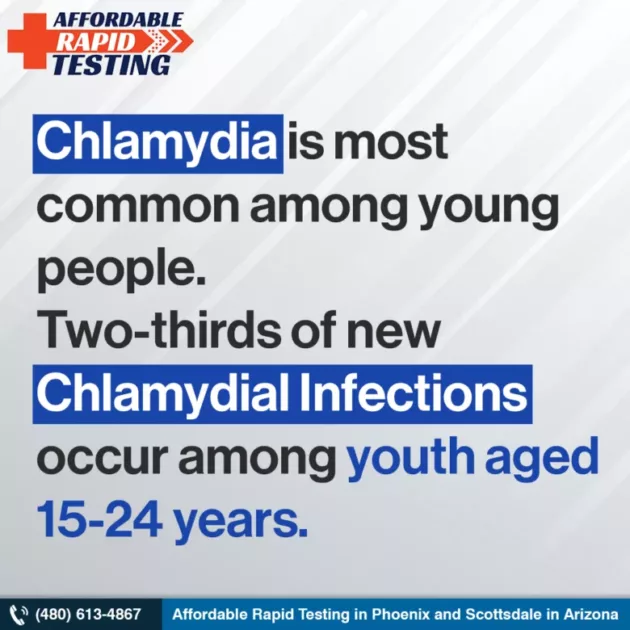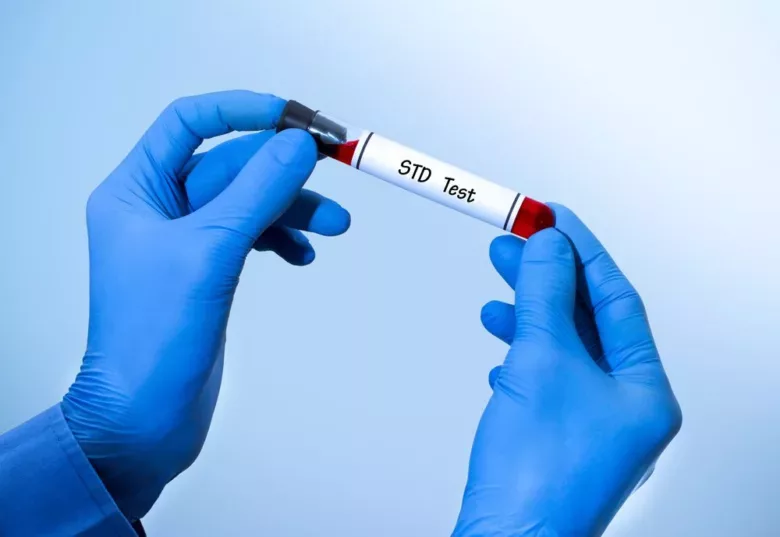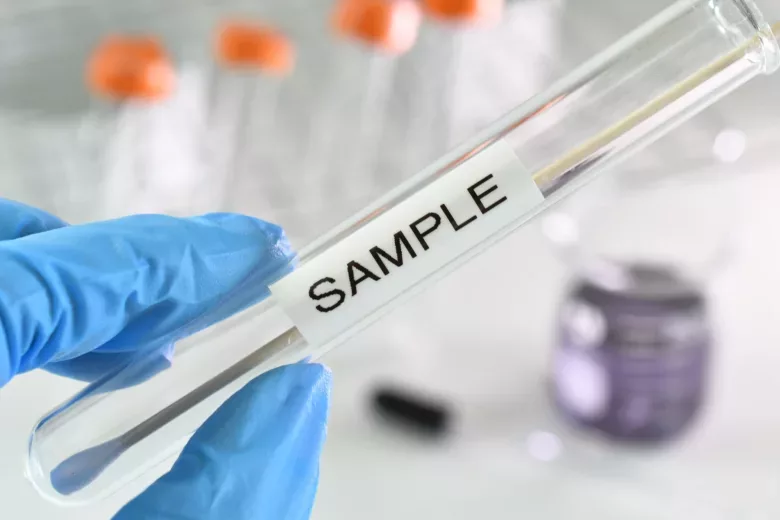Chlamydia is an STD that is responsible for dangerous infections like Cervicitis, Urethritis, and Proctitis. It’s important for sexually active individuals to get regular STI testing, including testing for Chlamydia, to ensure early detection and treatment. Left untreated, Chlamydia can lead to serious health problems, such as Pelvic Inflammatory Disease (PID), and might even cause infertility.
Today, with advanced tests for STDs Chlamydia is easily treatable with antibiotics like Azithromycin or Doxycycline. However, the disease is not on a permanent ban from your system. Meaning, you can contract Chlamydia just as easily even after undergoing treatment for it.
Symptoms of Chlamydia
The majority of Chlamydia patients exhibit no symptoms at all. If you experience symptoms, they often start to show within 7 to 14 days following exposure to the bacteria.
Chlamydia symptoms for women include:-
- Unusual vaginal discharge
- A burning or stinging sensation when peeing
- Bleeding or spotting between periods or after intercourse
- Pain during intercourse
Chlamydia symptoms for men include:-
- Unusual discharge from the penis
- Redness at the tip of the penis
- Pain or swelling in the testicles
- A burning or stinging sensation when peeing
How to get tested for STDs like Chlamydia?
Chlamydia is diagnosed using laboratory tests. The Nucleic Acid Amplification Test (NAAT) is the most widely used test for Chlamydia. For men, their urine sample is taken to perform the test and for women, their vaginal discharge is tested with a swab to detect Chlamydia.
What is the Chlamydia treatment?
After diagnosis, Chlamydia is easily treated with antibiotics.
It’s critical to be careful with the doses recommended for Chlamydia treatment. Treatment will cure the infection, but it won’t reverse any long-term effects of the illness. After receiving treatment, if a patient’s symptoms persist for more than a few days, a healthcare professional should reassess them.
Some of the ways Chlamydia symptoms can recur after treatment
Individuals with Chlamydia-infected sexual partner(s) are likely to contract the disease again. The high likelihood of re-infection in a short period and the frequency of Chlamydia infection in young women highlight the need for effective treatment, sensitization, and follow-up testing.
If your partner was not treated:-
Antibiotics used to treat Chlamydia (or any other STD) do not function like vaccines. Antibiotics do not make you resistant to bacteria, they only treat the infection that already exists.
As soon as you are diagnosed with Chlamydia, your partner(s) should also get tested and treated for the disease.
If you are not in a monogamous relationship, make sure that you communicate with your recent sexual partners. They must get tested and treated as fast as possible. For additional confirmation that the infection has been completely eradicated, a follow-up test after three to four months of the treatment is necessary.
If the course of antibiotics wasn’t completed as directed:-
After diagnosis, Chlamydia is simple and painless to cure with antibiotics. Nonetheless, each person will take a different prescription for the drugs. Occasionally a doctor will recommend a single hefty dose, but in other circumstances, you might need to take antibiotics for seven days.
Make sure to take the antibiotics as directed and finish the entire course. As you feel that your condition is improving, it can be tempting to discontinue treatment early, but doing so may leave bacteria behind. You may need even stronger medication to treat the infection if there are any residual Chlamydia bacteria as they can reproduce quickly and develop resistance to the initial treatments.
It’s also crucial to avoid engaging in intercourse while receiving treatment. Even though the antibiotics are working to relieve you of the infection, the illness persists in your body until you finish the complete course of the medicine.
Choose Affordable Rapid Testing for Chlamydia test
Chlamydia testing is recommended by the Centers for Disease Control and Prevention (CDC) as part of your regular health maintenance. Women, especially, should be screened regularly for the disease.
Affordable Rapid Testing is your go-to option for STD testing like Chlamydia, Gonorrhea, Syphilis, and Trichomoniasis. The Phoenix and Scottsdale centers in Arizona has state-of-the-art infrastructures and dedicated labs for Gonorrhea and Chlamydia testing. They also provide you with quick results and affordable rates. To find out more about their Chlamydia test, visit their website.


